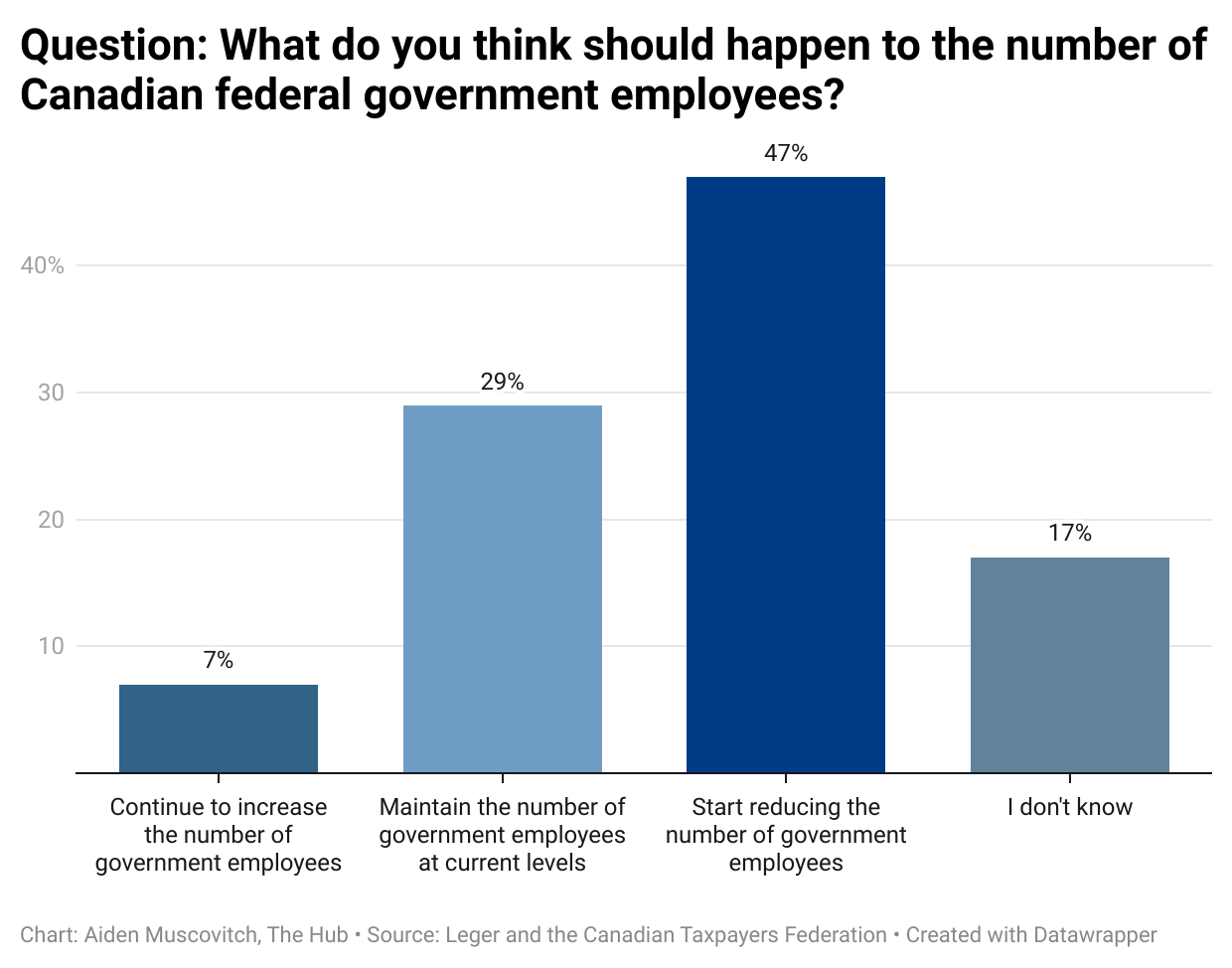This is The Week in Polling, your Saturday dose of interesting numbers from top pollsters in Canada and around the world, curated by The Hub. Here’s what we’re looking at this week.
Nearly half of Canadians say they want a smaller federal government
Since he took office, Prime Minister Justin Trudeau and the Liberal government have hired nearly 109,000 additional employees to the Canadian government.
This represents a 42 percent increase over his nearly decade-long tenure. There are now over 367,000 employees working for the federal government.
The total cost of these employees was $67.4 billion in 2023, a record high.
Most Canadians think our national women’s soccer team’s spying scandal is an ’embarrassment’
Last month, an assistant coach of Canada’s women’s soccer team was caught sending out a drone to spy on the New Zealand women’s team’s practices before the start of the Paris Olympic Games. This has apparently been a standard practice going back a few years, according to emails from the Canadian team’s head coach, Bev Priestman, who was removed from the Olympics as part of the team’s punishment. The team also received a six-point penalty, was ordered to pay a fine of about $313,000, and had three of their coaches, including Priestman, banned for a year by FIFA.
Most Canadians agree that this scandal is an embarrassment, however, they are split on the magnitude of it. Just over 40 percent of Canadians believe that it is an embarrassment for Canada Soccer, but not for the entire country. Meanwhile, just under 40 percent believe it is a national embarrassment.
The vast majority of Americans support Israel in its war against terrorist group Hamas
Since the events of October 7, when 3,000 Hamas terrorists invaded Israel to slaughter 1,200 civilians and kidnap hundreds more, a war broke out between Hamas, which controls Gaza, and Israel.
A vast majority (80 percent) of Americans support Israel in its war against the Iran-backed Hamas. Additionally, 66 percent of Americans believe Israel is trying to avoid committing civilian casualties in the war. The IDF has provided warnings to Gazan civilians ahead of attacks, in an attempt to give them due notice and time to evacuate.
Since the war began 10 months ago, the Hamas-controlled health ministry in Gaza says 39,175 Palestinians (Hamas militants and civilians) have been killed. Israel greatly disputes this number, insisting the numbers have been inflated. In May, Israeli Prime Minister Benjamin Netanyahu said 14,000 Hamas fighters and 16,000 Palestinian civilians had died in the conflict.












